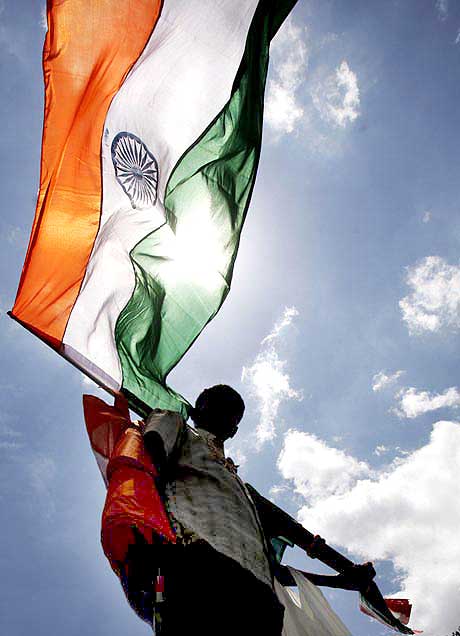Eminent historian Ramachandra Guha said a true nationalist must have a “sense of shame” for the crimes his government commits and accept that his country is not perfect.

Eminent historian and biographer Ramachandra Guha on Thursday said Indian pluralism is facing one of its “greatest threats” from religious chauvinists who remain committed to undermine it.
Speaking ahead of the launch of his new book “Democrats and Dissenters”, Guha said India’s adoption of a quite different model of nationalism saved it from its imminent disintegration as had been predicted by many leading intellectuals of the time.
“Gandhi and others who chose a model of nationalism quite different from European nations which stressed on acknowledging and cherishing Indian diversity and not imposing a single language and single religion on others is what kept India united,” Guha said.
He said a true nationalist must have a “sense of shame” for the crimes his government commits and must accept that his country is not perfect rather than worshiping a symbol and remaining committed only to hoisting of flags on educational institutions.
“Indian nationalism is not adversarial like Pakistani nationalism. The BJP’s nationalism is a mirror image of Pakistani nationalism. Hatred of Pakistan is important to the Hindutva view of the world, but that should not be important to an Indian nationalist. An Indian nationalist is someone who cherishes the values of the Constitution. A true nationalist should be a critic of the failures of his government,” he said.
Noting that Indian pluralism is facing one of the its biggest threats from some chauvinists who remain hell bent on converting a secular India into a “Hindu Pakistan”, Guha said the rise of Islamic fundamentalism in countries like Bangladesh and Pakistan has given rise to competitive Hindu fundamentalism in India.
Guha said Indian pluralism is fragile as Indian republic is never far away from a communal right.
Observing that Jawaharlal Nehru’s “greatest mistake” in Kashmir was not promising a plebiscite but incarceration of Sheikh Abdullah on a “false” charge, Guha said the move was a “blot on Indian democracy”.
Guha also took a dig at celebrated economist Amartya Sen, who also finds a mention in a critical essay in his new book, saying the Nobel laureate’s excursions into history are “misinformed” and his forays into literature are “rather amateurish and often counterproductive.”
Published by Penguin Random House India, the new book contains 16 essays touching upon a plethora of topics ranging from comparisons between modern political histories of India, Pakistan and China, Kashmir issue and Sri Lanka’s Tamil problem, sufferings of Adivasis with regard to Muslims and Dalits, down to themes like dearth of conservative intellectuals in India and decline of the Congress party.
Terming tribals as the “most vulnerable people”, Guha said that they had suffered economically and remained “politically invisible”.
Kashmir also finds a separate mention in a detailed essay where Guha compares it with Tamil conflict. He emphasises that the history of both Kashmiri and Tamil activism is of a “progressive radicalisation”, of a move from moderation through assertion on to militancy.
“Indian arrogance towards Kashmiris, and Sinhala intolerance towards Tamils, have at times been so brutal and extreme as to make reasoned and non-violent protest ineffective, and perhaps impossible,” he said.
About China, he declares that the Communist country has been more successful than India in tackling gender inequality and removing deep-rooted cultural and social biases.
Lamenting the paucity of credible right-wing intellectuals in India, Guha proclaims that the precondition of a conservative intellectual renaissance lies in the construction of a first-person plural which is not narrowly based on religion alone.
Image: A BJP supporter with his body painted in the party's colour attends a public rally. Photograph: Jitendra Prakash/Reuters










